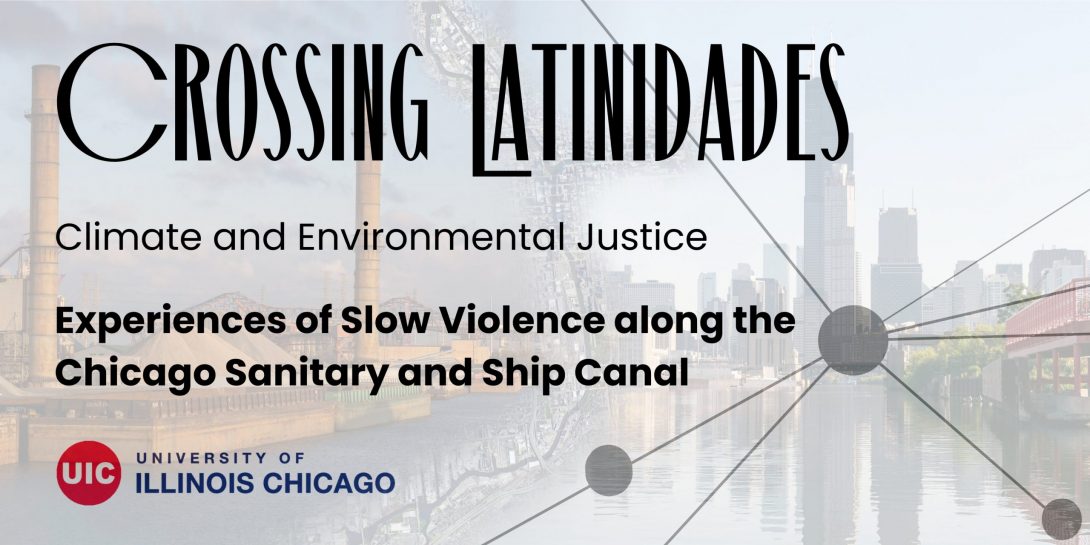
Summary
Rob Nixon introduced the concept of slow violence, describing it as a type of harm that is gradual and accumulative, rather than immediate and dramatic. This form of violence, often affecting poor and marginalized communities, worsens their vulnerability and is frequently overlooked in mainstream discussions about development and resilience. Unlike fast violence, such as shootings that capture brief media attention, slow violence like industrial pollution steadily impacts frontline communities and their residents’ health.
The Chicago Sanitary and Ship Canal is a prime example of this slow violence. Historically a hub for meatpacking, as depicted in Upton Sinclair’s The Jungle, the area saw coal-power plants close in the 2010s due to community activism. Today, it hosts a growing logistics industry with hidden warehouses and diesel trucks. This environmental violence is intertwined with the history of labor and immigration in neighborhoods like Pilsen, Little Village, and other areas on Chicago’s West and Southeast Sides. Residents now face challenges from urban flooding and the unchecked expansion of warehouses along the canal. Environmental cleanup projects often overlook community needs, leading to green gentrification and potential displacement.
This project documents both historical and current activities along the canal, focusing on their environmental impacts on nearby neighborhoods. We worked with Latino community-based environmental justice leaders to address the past, current policy, and possible futures along an industrialized waterway.
Chicago River History: Immigrations Waves and Labor Power

The engineering of the Chicago River in the early 20th century, aimed at diverting industrial waste southward and facilitating trade, was instrumental in transforming Chicago into a major industrial and commercial center. This development attracted waves of immigrants who settled in neighborhoods like Pilsen, Back of the Yards, Lawndale, and Little Village, drawn by the promise of work but confronted with hazardous conditions, low wages, and environmental degradation. The creation of the Illinois-Michigan Canal and later the Sanitary and Ship Canal enabled rapid industrial expansion, with factories and stockyards proliferating along the river, often at great cost to the surrounding environment and communities. These immigrant populations, facing exploitation and poor living conditions, became the backbone of a robust Chicago labor movement, engaging in strikes and protests despite facing significant resistance. Today, these neighborhoods are predominantly home to a working-class Latine population, with strong grassroots organizations continuing the fight against labor and environmental injustices. Cultural expressions, such as Pilsen’s Fiesta de Sol and the vibrant commercial corridor in Little Village, reflect a resilient community spirit. Although industry has shifted from meatpacking to logistics and warehousing, the exploitation of immigrant labor endures, yet so does the legacy of the labor movement, marked by ongoing efforts to address the challenges faced by these communities and to ensure that their voices are heard and their rights protected.
Below is recorded audio of Yana Kalmyka, formerly with Warehouse Workers for Justice (WWJ), speaking in spring 2022 about how the history of warehousing and goods movement parallels the Chicago River and how power can be leveraged across the labor and environmental movements.
For more details, please click here to visit the Freshwater Lab’s “The Backward River” website.
Research Archive
The two above videos are from the Latino Environmental Justice Leadership Along Industrial Waterways event, co-hosted by The Freshwater Lab and Great Cities Institute and featured several prominent environmental justice leaders from Chicago and Joliet as event speakers. This event is part of a larger Crossing Latinidades Humanities Research Initiative.
Panelists
Photos
People

Director of the Great Cities Institute (GCI) and Professor of Urban Planning and Policy at the University of Illinois Chicago
Professor in the Department of English at the University of Illinois Chicago and Director of the UIC Freshwater Lab
This project is supported by the Crossing Latinidades Humanities Research Initiative, which ignites cross-institutional and cross-regional comparative research, training of doctoral students, and new scholarship in emerging areas of inquiry about Latina/os. Funded by a grant from the Andrew W. Mellon Foundation, the initiative serves as the anchor of the Alliance of Hispanic Serving Research Universities, a consortium of R1 Hispanic Serving Institutions.
To go back to Crossing Latinidades: Climate and Environmental Justice landing page, please click here.





